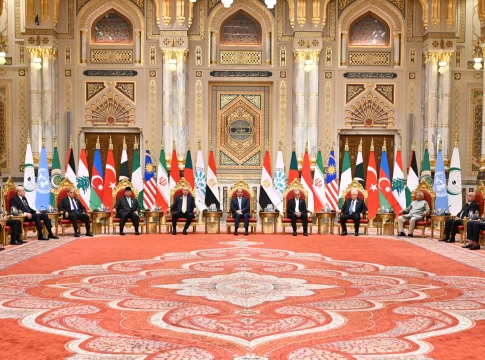Egypt recently became the focal point of international diplomacy as it welcomed leaders from the D-8 Organization for Economic Cooperation to its New Administrative Capital. The summit, held against a backdrop of regional tensions, focused on key issues ranging from the ongoing Israeli aggression in Gaza to humanitarian crises in Palestine, Lebanon, and Syria.
The D-8, or Developing-8, is a strategic coalition of eight countries: Egypt, Bangladesh, Indonesia, Iran, Malaysia, Nigeria, Pakistan, and Turkey. This summit marked a significant milestone with Azerbaijan joining as the ninth member on December 19, 2024, expanding the group’s influence and reach.
This summit was notably marked by the first visit of an Iranian president to Egypt in over a decade. Egyptian President Abdel Fattah Al-Sisi and Iranian President Masoud Pezeshkian engaged in crucial dialogues aimed at mending bilateral relations and promoting regional stability through peaceful means.
A key highlight, as well, was Al-Sisi’s meeting with Turkish President Recep Tayyip Erdoğan, where they explored avenues to strengthen economic, trade, and investment ties. Discussions also touched upon pressing regional issues, including conflicts in Gaza, Syria, Libya, Sudan, and Somalia.
In separate meetings with Palestinian President Mahmoud Abbas and Lebanese Prime Minister Najib Mikati, Al-Sisi emphasized the urgent need for a ceasefire and reiterated opposition to Israeli occupation in Palestine, Lebanon, and Syria. These discussions underscored Egypt’s proactive role in fostering dialogue and peace in the region.
The summit culminated in the Cairo Declaration, a comprehensive roadmap for development, cooperation, and inclusivity among member states. It outlines shared goals of justice, equality, and fraternity, focusing on key sectors such as agriculture, energy, and small and medium enterprises (SMEs).
The declaration, aligning with the D-8 Decennial Roadmap, prioritizes disaster management, healthcare collaboration, and women’s economic empowerment as catalysts for resilience and progress. Leaders committed to fostering sustainable development, enhancing peace, and building a future rooted in cooperation and mutual respect.
A significant portion of the declaration emphasized enhancing investment opportunities and expanding trade among member nations, leveraging digital platforms as effective mechanisms. The importance of digital transformation, e-commerce, and fintech in empowering SMEs and ensuring inclusive growth was highlighted as essential for economic resilience.
Dr. Amina El-Sayed, an economist at the Cairo Institute for Economic Development, commented, “The emphasis on digital trade and innovation is crucial as we move towards a more interconnected global economy. It paves the way for D-8 countries to harness emerging technologies and drive sustainable growth.”
The Cairo Declaration reiterated the D-8’s commitment to multilateralism, enriched by partnerships with international bodies such as the United Nations. It also underscored the necessity of advancing the preferential trade agreement within the D-8 to a more comprehensive economic partnership, aiming to increase intra-trade and foster economic solidarity.
In exclusive insights shared with MEO, a senior official from the Egyptian Ministry of Foreign Affairs revealed, “The D-8 summit is not just about economic cooperation but also about forging a path to peaceful coexistence and regional stability.”
The D-8 summit in Egypt represents a pivotal moment in regional and global diplomacy. As the member states look to the future, the focus remains on addressing global challenges such as poverty, climate change, and inequality through enhanced cooperation and innovation.



